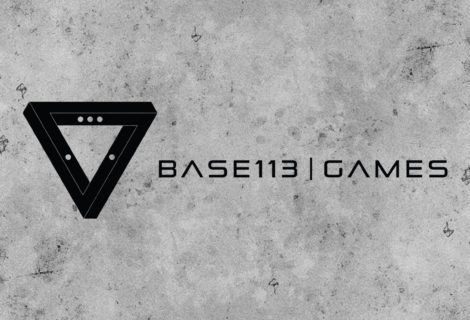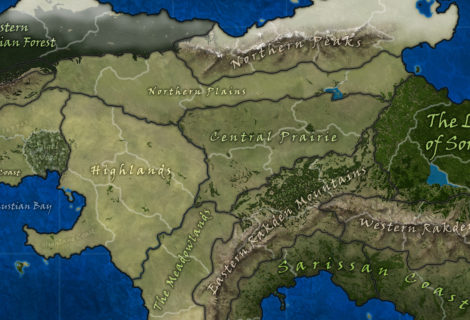Sector F6: Overview
What is Sector F6?
Sector F6 is an ongoing project to develop a scalable tabletop gaming system that encompasses elements of both roleplaying and strategy games.
The initial idea for this project stems from the ongoing development of the Proteus tabletop roleplaying game as well as a long-time interest in roleplaying games and love of board games.
The Goal
Create a tabletop gaming system that:
Supports tabletop strategy gaming (along the lines of the 4X, city-building, and wargaming genres).
Supports tabletop roleplaying of multiple genres (including sci-fi, fantasy, post-apocalyptic, and horror).
Uses strategic elements to enhance roleplaying campaigns and roleplaying elements to breath life and flexibility into the strategy game.
Enables players to seamlessly shift back and forth between both styles of play.
Enables players to shift focus on the aspects of gameplay they find most interesting and to shift that focus as desired throughout the course of the game.
Is customizeable and can be tailored to a wide variety of settings.
Objectives
The final system should utilize a unified system of basic mechanics for both the strategy and roleplaying modes of gameplay.
Events taking place while roleplaying should be capable of impacting the strategy game in a meaningful way, while events in the strategy game should impact roleplaying.
Roleplaying events and actions should NOT completely overpower the mechanics of the strategy game, but should facilitate actions that might not otherwise be possible or likely to succeed.
Events in the strategy game should NOT completely override the roleplaying experience, and players should have the opportunity to roleplay how events impact characters.
The system should allow for long and complex games while still supporting games that are smaller in scope or take place in a defined period of time.
The basics of the system should require a minimum of rules-referencing (e.g. looking up information in tables, etc.), and record-keeping should be kept to a reasonable level.
The system can be expanded and/or detailed to customize it for a specific setting or genre.
The system may also be used as a bridge to combine two or more games that exist within the same setting.
Styles of Games and Gameplay
Pure Roleplaying: The game acts solely as a tabletop roleplaying game with no strategic elements and only minimal concern for character activities between sessions/adventures.
Pure Strategy: The game acts solely as a tabletop strategy game with no player characters and limited use of important personalities/NPCs. The specific game style can vary and may include types such as civilization, exploration, and wargames.
Campaign: Emphasis is placed on the roleplaying game, with the strategy elements used in a support role as a broad and flexible campaign system.
Adventure Strategy: Emphasis is placed on the strategy game, and NPCs are used to flesh out and enhance the game world and influence key events. (Needs a better name.)
Hybrid (AKA Epic Storytelling): The game maximizes the use of roleplaying and strategy elements to build a game world full of characters and stories that exist against a rich backdrop of events and people.
Anticipated Features
The primary drivers of gameplay will likely be resource management, conflict resolution, and development over time.
Players will be able to focus on different aspects of gameplay by adjusting the scope of the game. Over the course of the game, players can adjust focus multiple times to enable individual characters or groups of varying sizes to take center stage.
The system will be scalable and able to incorporate:
Groups of characters (PC & NPC): Ranging from a small party to a collection of military units or an entire civilization.
Locations and territories: Ranging from single buildings to cities, planets, or entire regions of interstellar space.
Varying units of time: Ranging from seconds to days, weeks, months, years, etc.
Events in gameplay can include both random events like weather, natural disasters, or social movements as well as player-driven events that take place over time, such as military battles and scientific discoveries.
The system will incorporate mechanics so that gameplay at one level can affect gameplay at other levels. For example, success in a conflict at one level could result in an advantage or disadvantage in a conflict at another level. These advantages/disadvantages could be temporary or long-term.
The system will likely utilize only six-sided dice (d6), or more likely Fate dice. This will make the system more accessible.
Types of Conflict
The general types of conflict expected to be included in most games are:
Physical: Conflict revolving around the danger of physical damage and injury to characters, objects, and locations.
Psychological: Conflict focusing on the mental state of characters, their beliefs, and the psychological impact of events on both PCs and NPCs.
Social: Conflict concerned with the perception of characters and groups by others, including reputation, social standing, and likely reactions. These conflicts focus less on direct threats to the well-being of characters and organizations and more on some of the indirect factors that can nevertheless have a major impact over time.
Economic: Conflict involving the availability of resources and the resulting power to influence the game world. This is usually more relevant in games that incorporate at least some strategic elements, but can also involve character gear and possessions.
The Meaning Behind the Name
The choice of name for this project is actually based on many of the intended/anticipated features of the system.
S: Scalable, Strategic, Social
E: Events, Economic
C: Conflict, Characters, Customizable
T: Time
O: Open, Organizations
R: Resource Management
F: Focus, Framework
6: Six-sided Dice




Recent Comments